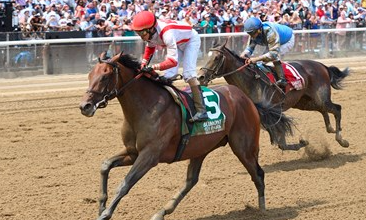Sponsorship in Horse Racing: Financial Benefits and Pitfalls

Sponsorship in horse racing presents a dual-edged sword. On one side, it offers financial boosts that can enhance operational budgets and facilities. On the other, it carries risks like contract disputes and market fluctuations that can diminish value. Stakeholders must navigate these complexities carefully. Establishing clear objectives and open communication may be essential. However, the balance between maximizing benefits and mitigating risks remains a critical challenge in this competitive industry.
The Financial Upsides of Sponsorship in Horse Racing
Although sponsorship in horse racing may initially seem like a mere marketing strategy, it offers significant financial advantages for both sponsors and the racing industry as a whole.
The influx of sponsorship revenue can enhance operational budgets and improve facilities. For sponsors, the potential investment returns are substantial, as well-placed branding can yield increased visibility, fostering long-term customer loyalty and engagement.
See also: The Financial Importance of Jockeys and Trainers in Horse Racing
Enhancing Visibility and Brand Recognition
How can sponsorship in horse racing significantly elevate a brand’s visibility and recognition?
By strategically aligning with high-profile events, brands achieve substantial exposure to a diverse target audience. This partnership fosters a positive association with the sport’s prestige, leading to enhanced brand credibility.
Consequently, businesses can effectively amplify their message and cultivate lasting relationships, ultimately driving consumer engagement and loyalty in a competitive marketplace.
Potential Challenges and Risks of Sponsorship Deals
While sponsorship in horse racing can enhance visibility and brand recognition, it is not without its challenges and risks.
Contract disputes may arise due to differing expectations or interpretations, potentially jeopardizing partnerships.
Additionally, market volatility can impact sponsorship value, leading to financial instability.
Stakeholders must navigate these complexities to ensure that the benefits of sponsorship outweigh the potential drawbacks and uncertainties.
Best Practices for Successful Sponsorship Agreements
To achieve successful sponsorship agreements in horse racing, it is essential for both parties to establish clear objectives and expectations from the outset.
Effective negotiation strategies should be employed to ensure mutually beneficial outcomes. Additionally, well-defined contract terms must address deliverables, timelines, and performance metrics.
Conclusion
In conclusion, while sponsorship in horse racing can unleash financial windfalls that propel stakeholders to new heights, it is not without its challenges. The potential pitfalls, including contract disputes and market fluctuations, require careful navigation. By establishing clear objectives and fostering effective communication, stakeholders can harness the full power of sponsorship. Ultimately, a well-executed sponsorship can be the golden ticket to success in the dynamic world of horse racing, ensuring longevity and growth in a competitive arena.




